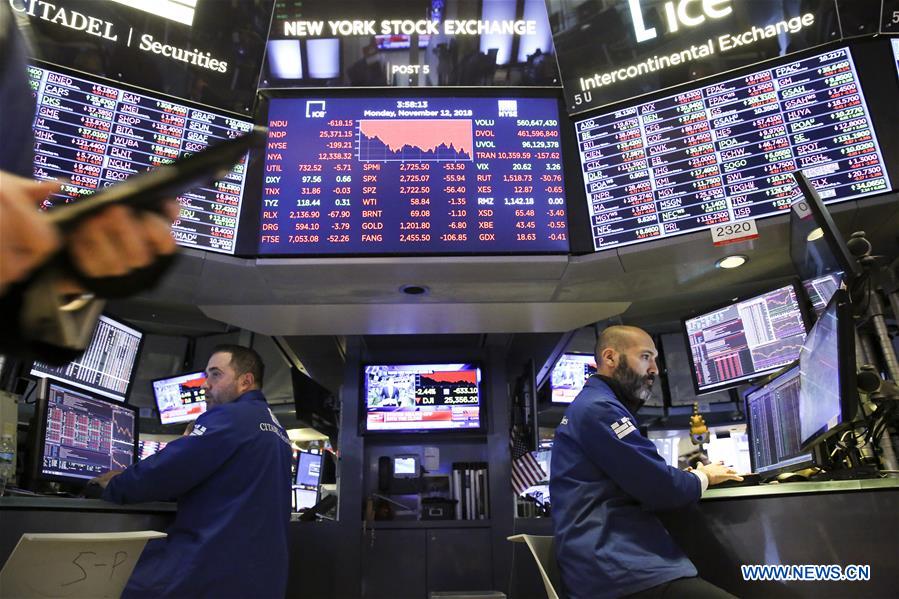
Traders work at the New York Stock Exchange in New York, the United States, Nov. 12, 2018. (Photo: Xinhua)
NEW YORK, March 9 (Xinhua) -- US stocks plunged on Monday with the Dow closing down more than 2,000 points amid anxieties over a possible all-out oil price war and economic slowdown from the spreading coronavirus.
The Dow Jones Industrial Average cratered 2,013.76 points, or 7.79 percent, to 23,851.02. The S&P 500 was down 225.81 points, or 7.60 percent, to 2,746.56. The Nasdaq Composite Index shed 624.94 points, or 7.29 percent, to 7,950.68. All three benchmarks notched their worst daily declines in years.
All the 11 primary S&P 500 sectors finished lower, with energy falling about 20 percent, representing the worst-performing group.
Massive sell-off in early trading triggered a rarely used circuit breaker, and trading was halted for 15 minutes a few minutes after Monday's opening.
The Cboe Volatility Index, widely considered as the best fear gauge in the stock market, spiked 29.85 percent to 54.46 on Monday.
"Risk assets slumped and safe havens soared on Monday as a collapse in oil prices added to the complexity facing global investors grappling with the spread of COVID-19," analysts at UBS said in a note on Monday.
The West Texas Intermediate for April delivery fell 10.15 U.S. dollars, or about 24.6 percent, to settle at 31.13 dollars a barrel on the New York Mercantile Exchange, while Brent crude for May delivery fell 10.91 dollars, or 24.1 percent, to close at 34.36 dollars a barrel on the London ICE Futures Exchange. Both oil benchmarks posted their worst day since 1991.
Investors continued to seek safer assets. The yield on the benchmark 10-year Treasury note dropped below 0.5 percent, hitting a record low. Yields move inversely to prices.
Saudi Arabia announced massive discounts to its official selling prices for April over the weekend, and is reportedly ready to raise its production above the 10 million barrel per day level.
The move came after the Organization of the Petroleum Exporting Countries (OPEC) failed to strike a deal with its allies, led by Russia, about oil production cuts last week.


